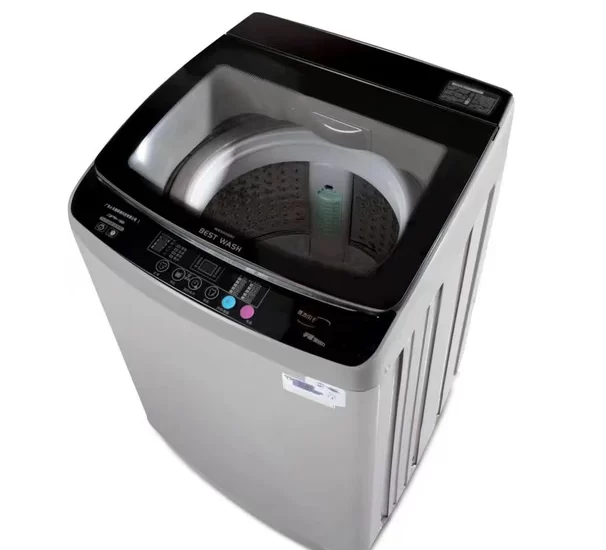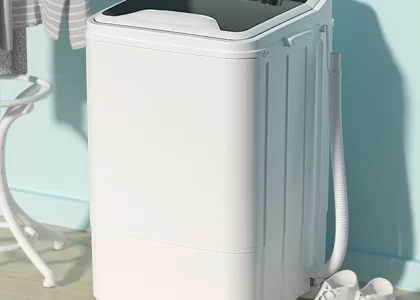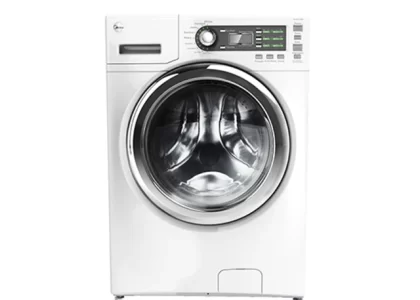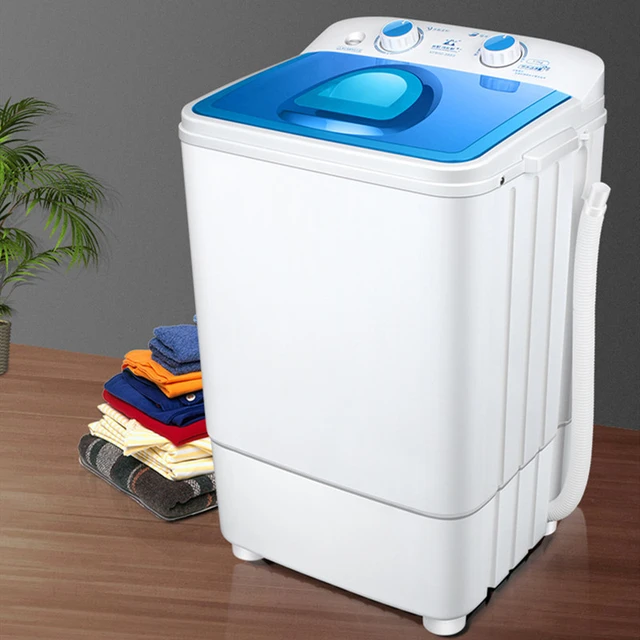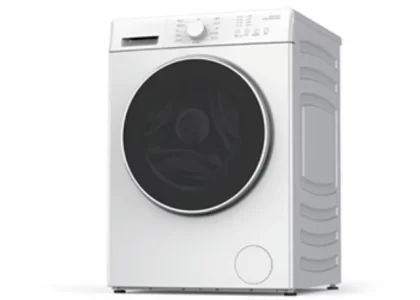 Introduction:
Introduction:
When your washing machine starts making a loud noise, it can be unsettling and indicate an underlying issue that needs attention. Identifying the cause of the noise is the first step toward resolving the problem and ensuring your machine works efficiently. In this comprehensive guide, we will explore the common reasons why a washing machine makes a loud noise and provide troubleshooting tips and solutions. By following these simple steps, you can address the noise issue and keep your washing machine functioning optimally.
There are several types of washing machines available in the market. Here are some common types:
Top-Loading Washing Machine:
This is the most traditional and widely used type of washing machine. It features a hinged lid on the top, and you load and unload the clothes from the top. Top-loading machines are generally more affordable and have a faster washing cycle.
Front-Loading Washing Machine:
Front-loading machines have a door on the front, so you load and unload clothes from the front. They are known for their efficient water and energy usage. Front-loading machines typically have more advanced features, longer washing cycles, and larger capacities.
Washer-Dryer Combo:
This is a combination unit that combines both washing and drying functions in a single machine. It is suitable for smaller spaces where there is no room for separate washer and dryer units.
Compact Washing Machine:
Compact washing machines are designed for small living spaces, apartments, or RVs. They have a smaller capacity and are more lightweight and portable than standard washing machines.
Smart Washing Machine:
Smart washing machines can be connected to the internet and controlled remotely through a mobile app. They offer features such as customized washing cycles, energy monitoring, and alerts for maintenance or completion of a wash cycle.
High-Efficiency (HE) Washing Machine:
HE washing machines are designed to use less water and energy compared to traditional models. They have specialized detergent requirements and may have longer washing cycles to ensure effective cleaning.
Portable Washing Machine:
Portable washing machines are compact and lightweight and can be easily transported. They are suitable for camping trips, small apartments, or for people who want an additional washing option.
It’s important to consider factors such as capacity, energy efficiency, features, and your specific needs when choosing a washing machine type. Each type has its advantages and limitations, so it’s beneficial to research and compare different models before making a purchase.
 Unbalanced Load
Unbalanced Load
Overloading:
Overloading the washing machine can cause it to become unbalanced during the spin cycle, resulting in excess noise.
Ensure that you follow the recommended load capacity guidelines provided by the manufacturer.
Uneven Distribution:
Improper distribution of laundry within the machine can lead to an unbalanced load and loud noise.
Distribute the clothes evenly around the drum to maintain balance during operation.
 Loose or Worn Parts
Loose or Worn Parts
Loose Tub Mounts:
The tub mounts hold the drum in place, and if they become loose, they can cause excessive vibrations and noise.
Inspect the tub mounts and tighten or replace them as necessary.
Worn Belt:
A worn or damaged belt can cause a loud noise during operation.
Examine the belt for signs of wear, cracking, or fraying and replace it if necessary.
Section 3: Faulty Components
Damaged Bearings:
Over time, the bearings that support the drum can become worn or damaged, resulting in a loud noise.
Schedule a professional inspection and replace the faulty bearings if required.
Faulty Motor:
A malfunctioning motor can produce unusual noises during operation.
Seek professional assistance to diagnose and repair or replace the motor.
Excessive Vibration
Leveling Issues:
A washing machine that is not properly leveled may vibrate and generate loud noises.
Check that the machine is placed on a level surface and adjust the leveling feet as needed.
Floor Stability:
If the floor beneath the washing machine is not stable, it can contribute to excessive vibrations and noise.
Reinforce the floor or relocate the machine to a more stable area.
 Maintenance and Care
Maintenance and Care
Cleaning the Machine:
Regularly clean the inside of the machine to remove any debris or buildup that may contribute to noise.
Follow the manufacturer’s instructions for cleaning and maintenance.
Routine Maintenance:
Schedule routine maintenance for your washing machine, including inspections and servicing by a professional.
Regular maintenance helps identify potential issues before they escalate into more significant problems.
Proper Installation:
Ensure that the washing machine is properly installed, following the manufacturer’s guidelines and recommendations.
A well-installed machine is less likely to experience excessive noise or vibrations.
If your washing machine is leaking
If your washing machine is leaking, here are some steps you can take to troubleshoot and potentially resolve the issue:
Turn off the Machine:
First, shut off the washing machine and unplug it from the power source to ensure safety while troubleshooting.
Check the Water Supply:
Examine the water inlet hoses connected to the machine. Make sure they are securely attached and not kinked or damaged. Tighten any loose connections and replace any faulty hoses if necessary.
Inspect the Drain Hose:
The drain hose, which removes wastewater from the machine, may be the source of the leak. Ensure that it is properly connected to both the washing machine and the drain outlet. Look for any clogs, cracks, or damage in the hose and replace it if needed.
Clean the Pump Filter:
A clogged pump filter can cause water to leak from the machine. Locate the pump filter (usually at the bottom or back of the machine) and clean it of any debris or lint that may be obstructing the flow of water.
Examine the Door Seal:
If you have a front-loading washing machine, inspect the door seal or gasket for any signs of damage or deterioration. If you notice any leaks or tears in the seal, it may need to be replaced.
Level the Machine:
Check if the machine is level by using a spirit level. Adjust the feet or leveling knobs underneath the machine to ensure it is sitting evenly on the floor. An unbalanced machine can cause water to leak during operation.
Call a Professional:
If the above steps do not resolve the issue or if you are unsure about performing further troubleshooting, it is recommended to contact a qualified technician or the manufacturer’s customer service for assistance.
Remember to always prioritize safety and follow the manufacturer’s guidelines when troubleshooting or repairing any appliance.
 Conclusion:
Conclusion:
When your washing machine starts making a loud noise, addressing the issue promptly is important to avoid further damage and maintain its efficiency. By understanding the possible causes and implementing the corresponding troubleshooting tips and solutions provided in this guide, you can resolve the noise problem. Remember to address load balance, inspect and replace worn or loose parts, and address issues related to faulty components or excessive vibrations. Regular maintenance and care, along with proper installation, contribute to the smooth and quiet operation of your washing machine. With these steps in mind, you can keep your washing machine running smoothly and quietly, ensuring a hassle-free and efficient laundry experience.

